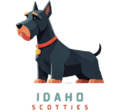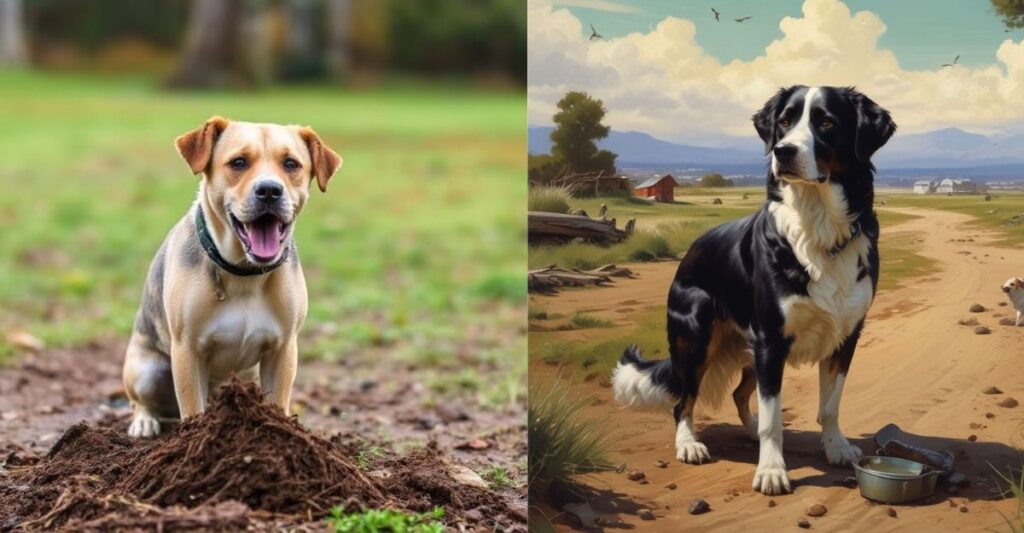Curious why do dogs eat poop? Learn the reasons behind this behavior, from nutritional deficiencies to instinct, and discover effective ways to prevent it.
If you’re a dog owner, you may have encountered the somewhat unpleasant behavior of your dog eating poop. This behavior, known as coprophagia, is more common than most pet owners realize.
While it may seem strange or even disturbing, dogs eating poop can occur for a variety of reasons, both health-related and behavioral. In this blog post, we’ll explore the potential causes of coprophagia and how to address it effectively.
What is Coprophagia?
Coprophagia is the term used to describe the behavior of eating feces. It is not limited to dogs; some other animals, such as rabbits and rodents, also exhibit this behavior. While it can be disconcerting for dog owners, it’s important to understand that it’s a relatively common behavior in dogs, particularly puppies.
There are numerous reasons why dogs eat poop, and each case can be unique. Some dogs may eat poop occasionally, while others may do so frequently. It’s essential to pay attention to the frequency and context of this behavior to determine the underlying cause.
Why Do Dogs Eat Poop?
Understanding why dogs engage in coprophagia can help you address the behavior and ensure your dog’s health and well-being. Here are some common reasons why dogs eat poop:
Nutritional Deficiencies
One of the most common reasons dogs eat poop is due to nutritional deficiencies. Dogs, especially puppies, may instinctively try to consume feces if their diet is lacking essential nutrients. These nutrients can include vitamins, minerals, or enzymes that are not being absorbed properly in their digestive systems.
For instance, if a dog is not getting enough protein, they may eat feces to supplement their intake of this essential nutrient. Similarly, dogs on a low-quality or unbalanced diet may seek out feces as a source of nutrients that they are lacking.
What to Do?
If you suspect that your dog’s poop-eating behavior is linked to nutritional deficiencies, consider reviewing their diet and making sure they’re getting the proper balance of nutrients. Consult with a veterinarian to ensure that your dog’s food is of high quality and appropriate for their specific needs.
Medical Conditions
Certain medical conditions can also lead dogs to eat feces. Digestive problems, such as malabsorption syndromes, can prevent your dog from fully absorbing the nutrients from their food, causing them to seek alternative sources. Additionally, conditions like diabetes, parasites, and pancreatic insufficiency can also contribute to coprophagia.
If a dog’s digestive system is not functioning properly, they may instinctively try to eat feces in an attempt to reabsorb the nutrients that their bodies are failing to process.
What to Do?
If your dog has suddenly started eating poop and it seems to coincide with changes in their health, it’s important to have them examined by a vet. A thorough check-up and diagnostic tests can help identify any underlying medical issues that may be contributing to this behavior.
Behavioral Issues and Stress
Dogs can sometimes engage in poop-eating as a response to stress, anxiety, or boredom. If your dog is left alone for long periods, lacks mental stimulation, or feels neglected, they may resort to undesirable behaviors such as eating feces. This is particularly common in dogs that are not receiving enough exercise or playtime.
Some dogs may also eat poop due to separation anxiety, as they try to cope with the stress of being apart from their owners. Additionally, changes in the household, such as a new pet or moving to a new home, can create stress that leads to this behavior.
What to Do?
To address stress-related coprophagia, it’s important to focus on reducing anxiety and providing more mental stimulation. Regular exercise, interactive toys, and scheduled play sessions can help prevent boredom. If anxiety is the root cause, consider seeking advice from a professional dog trainer or behaviorist.
Instinct and Exploration
Puppies are naturally curious, and their exploratory behavior often leads them to put objects in their mouths—especially when they are in the learning stages of their development. This may include eating feces. In some cases, dogs may view feces as a foreign object to explore, particularly if they are not yet fully house-trained.
This behavior is often temporary and can fade as the dog matures and learns proper behavior. However, it can still be concerning for pet owners, especially if it persists into adulthood.
What to Do?
Puppy owners should focus on providing positive reinforcement for good behavior and teaching proper potty training techniques. If you notice that your dog is engaging in this behavior, redirecting them to appropriate toys or distractions can help deter them from eating feces.
Attention-Seeking Behavior
Some dogs may engage in coprophagia as a way to get attention from their owners, especially if they receive a strong reaction when they engage in the behavior. Even negative attention, such as scolding or yelling, can be perceived as a reward by the dog.
If your dog realizes that eating poop gets a reaction, they may continue doing it as a way of gaining your focus.
What to Do?
Ensure that your dog is not getting reinforcement for eating feces. If they engage in the behavior, avoid reacting or giving them attention. Instead, provide positive reinforcement for appropriate behavior, such as sitting or playing with a toy.
Compulsive Disorder
In rare cases, coprophagia can develop into a compulsive disorder, where the dog eats poop repeatedly out of habit or obsession. This can be caused by an imbalance in the dog’s brain chemistry, leading them to seek out feces even when other factors are not at play.
Dogs with compulsive disorders may continue engaging in this behavior despite interventions or changes in their environment.
What to Do?
If you suspect that your dog has developed a compulsive disorder, it’s important to consult with a veterinarian or a behaviorist. They can assess the situation and may recommend behavioral therapy or medication to help curb the behavior.
How to Prevent Dogs from Eating Poop?

If your dog is eating poop, it’s natural to want to stop the behavior. Here are some tips to help prevent coprophagia:
Improve Diet Quality
Ensure your dog is eating a balanced and nutritious diet that meets their needs. High-quality dog food with the right balance of protein, fats, and vitamins can prevent nutritional deficiencies that may lead to poop-eating behavior.
Regular Vet Check-ups
Regular veterinary visits are essential for detecting and addressing any underlying health issues. If you notice your dog suddenly starts eating feces, a visit to the vet can help rule out medical conditions that could be contributing to the behavior.
Provide Enough Mental and Physical Stimulation
Dogs need exercise and mental stimulation to stay happy and healthy. Make sure your dog is getting enough playtime, walks, and enrichment activities. Interactive toys and puzzles can keep your dog engaged and reduce boredom-related behaviors.
Clean Up After Your Dog Immediately
If your dog has access to a yard or outdoor area where they can find feces, make sure to clean up after them as soon as possible. This will help reduce the temptation for your dog to eat their own poop or other animals’ feces.
Training and Positive Reinforcement
Training your dog to avoid eating feces can take time and patience. Use positive reinforcement techniques, such as treats and praise, to reward your dog when they behave appropriately. Redirect their attention when they start to eat feces and encourage them to focus on toys or other distractions.
Consult a Professional
If your dog’s poop-eating behavior persists or becomes more frequent, consider consulting with a veterinarian or a professional dog trainer. They can help identify the root cause and suggest appropriate interventions.
Conclusion
While the behavior of dogs eating poop, or coprophagia, can be unsettling for many pet owners, it’s important to understand the potential causes behind it. Whether it’s due to nutritional deficiencies, medical conditions, stress, or behavioral issues, addressing the root cause is the key to stopping this behavior. With the right intervention, training, and care, most dogs can overcome this habit and lead a happy, healthy life.
By taking proactive steps, such as improving your dog’s diet, ensuring regular veterinary care, and providing mental and physical stimulation, you can reduce the likelihood of your dog eating poop. Always remember, understanding your dog’s needs and behavior is crucial to ensuring their well-being.
Pet trainer with a passion for helping animals and owners build strong, loving bonds through positive reinforcement and expert care.



